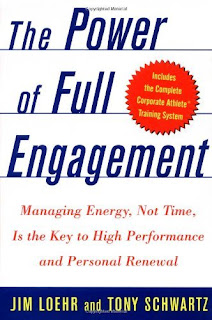
Where you can find best books in the world!!! Include New York Times & Amazon Bestsellers
Search This Blog
Wednesday, August 18, 2010
Be Yourself, Everyone Else is Already Taken: Transform Your Life with the Power of Authenticity

Tuesday, August 17, 2010
What the Dog Saw: And Other Adventures

The Big Short - Inside the Doomsday Machine

What Every BODY is Saying

Economics in One Lesson: The Shortest and Surest Way to Understand Basic Economics

Talent Is Overrated: What Really Separates World-Class Performers from Everybody Else

Web of Debt: The Shocking Truth About Our Money System and How We Can Break Free

The Creature from Jekyll Island: A Second Look at the Federal Reserve

Where does money come from? Where does it go? Who makes it? The money magicians' secrets are unveiled. We get a close look at their mirrors and smoke machines, their pulleys, cogs, and wheels that create the grand illusion called money. A dry and boring subject? Just wait! You'll be hooked in five minutes. Reads like a detective story — which it really is. But it's all true. This book is about the most blatant scam of all history. It's all here: the cause of wars, boom-bust cycles, inflation, depression, prosperity. Creature from Jekyll Island will change the way you view the world, politics, and money. Your world view will definitely change. You'll never trust a politician again — or a banker.
Who Says Elephants Can't Dance?: Leading a Great Enterprise through Dramatic Change

Socialnomics: How Social Media Transforms the Way We Live and Do Business
.jpg)
A fascinating, research-based look at the impact of social media on businesses and consumers around the world, and what's in store for the future Social Media. You've heard the term, even if you don't use the tools. But just how big has social media become? Social media has officially surpassed pornography as the top activity on the Internet. People would rather give up their e-mail than their social network. It is so powerful that it is causing a macro shift in the way we live and conduct business. Socialnomics charts this shift from the forefront.
Brands can now be strengthened or destroyed by the use of social media. Online networking sites are being used as giant, free focus groups. Advertising is less effective at influencing consumers than the opinions of their peers. If you aren't using social media in your business strategy, you are already behind your competition.
- Explores how the concept of "Socialnomics" is changing the way businesses produce, market, and sell, eliminating inefficient marketing and middlemen, and making products easier and cheaper for consumers to obtain
- Learn how successful businesses are connecting with consumers like never before via Twitter, Facebook, YouTube, and other social media sites
- A must-read for anyone wanting to learn about, and harness the power of social media, rather than be squashed by it
- Author Erik Qualman is a former online marketer for several Top 100 brands and the current Global Vice President of Online Marketing for the world's largest private education firm
Socialnomics is an essential book for anyone who wants to understand the implications of social media, and how businesses can tap the power of social media to increase their sales, cut their marketing costs, and reach consumers directly.
Monday, August 16, 2010
The Art of Public Speaking with Connect Lucas

The new edition offers a revolutionary digital experience--McGraw-Hill Connect Lucas and Connect Lucas Plus. The Connect Lucas products allow students and instructors to access all course materials including a complete media and research library, study aids and speech preparation and assessment tools from a single place, connectlucas.com. With Connect Lucas, students use the traditional printed text. Specially marked icons in the text guide students to the media-rich, interactive features available at connectlucas.com. Connect Lucas Plus allows students and instructors to access the fully-integrated, media-rich textbook from connectlucas.com. As students read the book online, linked icons guide them to embedded media-rich, interactive features.
Sunday, August 15, 2010
The Power of Full Engagement: Managing Energy, Not Time, Is the Key to High Performance and Personal Renewal

Free to Choose: A Personal Statement

The Brand Bubble: The Looming Crisis in Brand Value and How to Avoid It

Companies today face a dilemma in marketing. The tried-and-true formulas to create sales and market share behind brands are becoming irrelevant and losing traction with consumers. In this book, Gerzema and LeBar offer credible evidence--drawn from a detailed analysis of a decade's worth of brand and financial data using Y&R's Brand Asset Valuator (BAV), the largest database of brands in the world--that business is riding on yet another bubble that is ready to burst--a brand bubble. While most managers still see metrics like trust and awareness as the backbone of how brands are built, Gerzema asserts they're dead wrong--these metrics do not add to increased asset value. In fact, by following them, they actually hasten the declining value of their brands.
Using a five-stage model, The Brand Bubble reveals how today's successful brands--and tomorrow's--have an insatiable appetite for creativity and change. These brands offer consumers a palpable sense of movement and direction thanks to a powerful "energized differentiation." Gerzema reveals how brands with energized differentiation achieve better financial performance than traditional brands have. Plus, Gerzema helps readers develop energized differentiation in their own brands, creating consumer-centric and sustainable organizations.